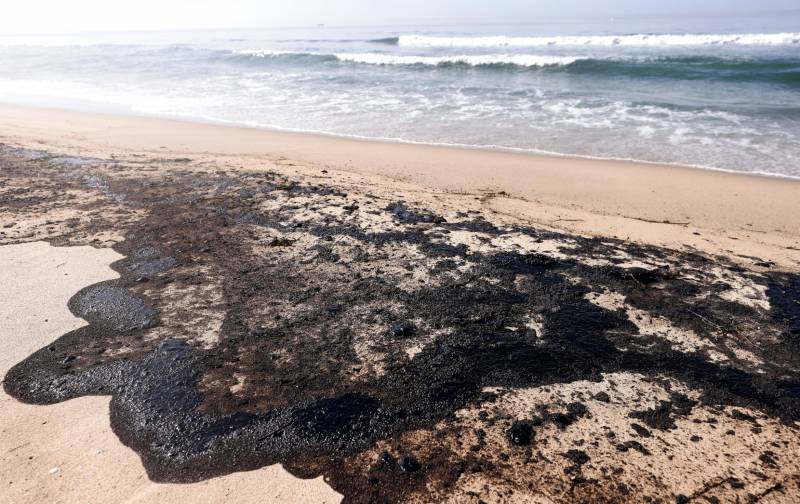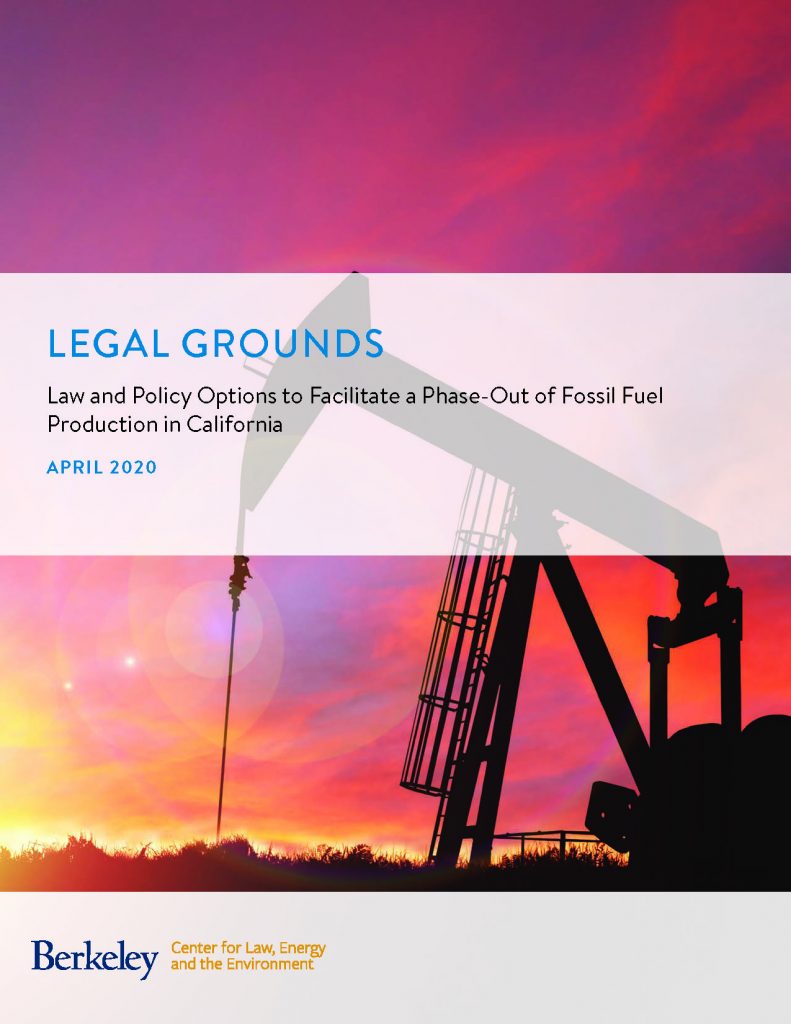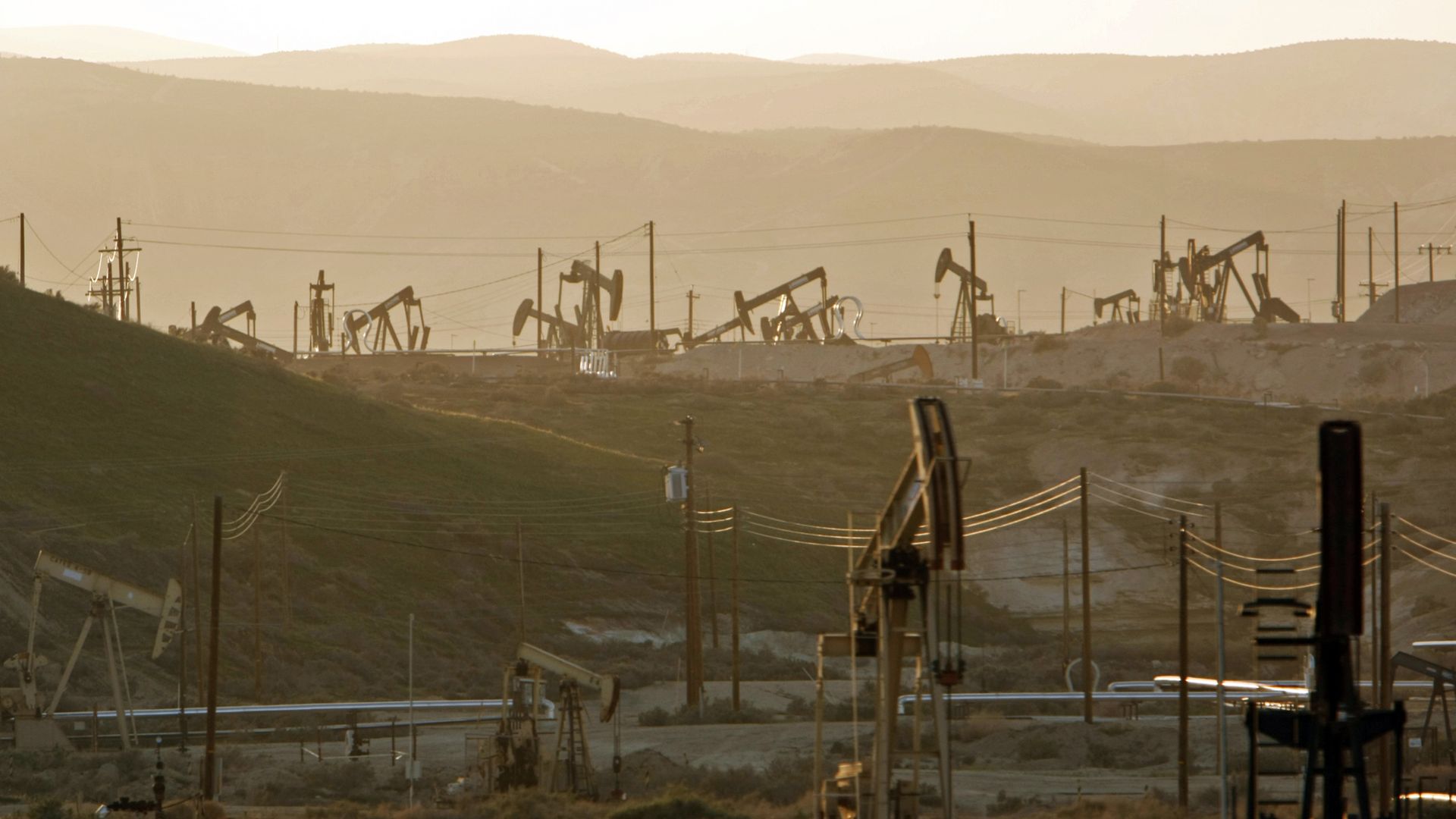
It’s another environmental catastrophe in Southern California this past week, with a ruptured oil pipeline off the coast of Huntington Beach spewing 127,000 gallons into the ocean and onto beaches and wildlife.
It’s at least the fourth major oil spill in Southern California waters in the last half century or so, and the second pipeline rupture off of Southern California in just the past six years.
Given the state’s climate goals and decreasing reliance on petroleum for transportation, the spill is a reminder of the risks of our continued in-state oil and gas production, though this facility was permitted in federal waters.
To discuss options for state and local leaders to avoid this kind of tragedy in the future, I spoke to KTVU Channel 2 News about potential paths forward (see this video at about the two-minute mark).
My thoughts are based in part on our 2020 Berkeley Law report Legal Grounds: Law and Policy Options to Facilitate a Phase-Out of Fossil Fuel
Production in California.

Interested in learning about policy options to phase out California’s oil and gas production? Join me and Ted Lamm today at 11am Pacific Time as we present findings from the new CLEE report Legal Grounds. We will discuss the background of oil and gas production in California and key law and policy opportunities to begin a phase-out in order to meet climate and environmental goals.
Also joining us on the webinar will be:
- Ann Alexander
Senior Attorney, Dirty Energy, Lands Division, Nature Program
Natural Resources Defense Council - Ingrid Brostrom
Assistant Director
Center on Race, Poverty & the Environment - Sean B. Hecht
Co-Executive Director, Emmett Institute on Climate Change and the Environment
UCLA School of Law

It might seem obvious that phasing out oil and gas production in California would benefit the climate. But the reality is much more complicated, in terms of emissions, economics and even geopolitics.
CLEE just released the report Legal Grounds with policy options to reduce in-state production, but the question of how much a phase out would benefit the climate was mostly beyond the scope of our analysis (which we’ll be discussing in more detail on a free webinar on Tuesday, May 12th, at 11am). However, it’s a question worth examining in more detail.
The challenge is that demand for fossil fuels in the state will remain for the foreseeable future, even if local production ceases. If we stop producing oil here, we’ll start importing more from elsewhere.
While California’s oil demand is already decreasing due to market and policy factors, until consumers completely transition to zero-emission vehicles and find alternatives to petroleum-based products like plastic and asphalt — and until refineries in the state stop exporting to markets around the Pacific — the supply will still find its way to the state. If that oil comes from out-of-state sources, the carbon footprint may even be higher than if California produced it domestically due to shipping emissions.
However, economic theory indicates that a decrease in California production will mean some decrease in consumption, as global prices will rise slightly from reduced overall supply. One study indicated it could lead to global emission reductions of 8 to 24 million tons of CO2 per year. And any oil left in the ground is oil not burned in the long run, meeting one of the highest priorities of climate activists. So a California phase-out could help avoid some emissions, though the rate is unclear.
What about the political implications of phasing out oil and gas consumption for climate policy? One argument is that a phase-out here might inspire other jurisdictions to follow suit. As most climate models indicate that some percentage of fossil fuels will have to remain untapped as an imperative for avoiding the worst of climate change, why not start in California, a state committed to climate action? It might be hard to imagine that top oil-producing countries like Saudi Arabia, Iraq and Iran (or other U.S. states) would be so inspired, but perhaps places like Norway or Colorado might be more politically open to it. And if the oil industry in California phased out, its lobbying power might also wane, allowing the state to pursue more aggressive policies on the demand side.
The economic impacts of a phase-out for climate policy are also complicated. As Severin Borenstein at UC Berkeley Energy Institute at Haas blogged in 2018, a phase-out in California would mean slightly higher worldwide oil prices, which would in turn enrich the major oil producing companies and countries who are still providing supply. As he summarized:
One could think of this as similar to a very small worldwide carbon tax, except in this case the revenue is not rebated to the population as a whole or used to reduce other taxes, but rather handed to those who own and control the world’s oil production
But there is one clear benefit from phasing out in-state oil and gas production in California: improved health and safety of surrounding communities. Scientists have linked drilling for oil and gas to numerous public health challenges, including increased rates of asthma, cancer, and other health threats. And much of the drilling in California occurs in or near residents of disadvantaged communities, adding to the urgency.
Another certainty is that California is firmly committed to reducing demand for fossil fuels, through boosting zero-emission vehicles, requiring lower-carbon fuels, and pricing carbon through cap and trade. As this activity increases, it will put pressure for corresponding reductions on the supply side, regardless of any other uncertainties involved.
So while the benefits of a phase-out of California production may be somewhat unclear in terms of avoided carbon emissions, the health and safety value is clear. California’s ability to manage the process with a careful, just transition could demonstrate a viable path forward for this long-term climate effort.

California is the seventh-largest oil producing state in the country, with a fossil fuel industry that is responsible for billions of dollars in state and local revenue and other economic activity each year. Yet continued oil and gas production contrasts with the state’s aggressive climate mitigation policies, while creating significant air and water pollution, particularly for disadvantaged communities in areas where much of the state’s drilling occurs.
As a result of these risks, many advocates and policymakers seek ways to enhance regulation of and eventually phase out oil and gas production in California. Recent global price wars and declining demand from the COVID-19 pandemic have underscored the need to conduct this phase-out in a just and orderly fashion.
To provide legal options for policy makers to facilitate this transition, Berkeley Law’s Center for Law, Energy and the Environment (CLEE) is today releasing the new report “Legal Grounds: Law and Policy Options to Facilitate a Phase-Out of Fossil Fuel Production in California,” co-authored with CLEE climate law and policy fellow Ted Lamm.
The report analyzes steps California leaders could pursue on state- and privately-owned lands to achieve this reduction. Among the options discussed, state leaders could:
- Enhance regulatory authority over drilling by clarifying the need for the California Geologic Energy Management Division (the state’s primary oil and gas regulator) to prioritize environmental and climate impacts over production;
- Heighten scrutiny on permitting via comprehensive environmental review with mandatory, site-specific mitigation measures under the California Environmental Quality Act (CEQA);
- Institute minimum statewide drilling setbacks of at least 2,500 feet or more from sensitive sites, such as schools, parks, and houses;
- Implement a per-barrel or per-well severance tax and dedicate the revenue to projects that further the goal of transitioning away from fossil fuel; and
- Task the California Air Resources Board with devising and implementing a comprehensive plan for a phase-out of all in-state oil and gas production by a date that tracks with overall climate goals.
To learn more about the report findings, please join our free webinar on Tuesday, May 12th, from 11am to noon, with Sean Hecht of UCLA Law and Ingrid Brostrom of the Center on Race, Poverty & the Environment. Registration is here.
This report ultimately comes at a unique moment in the history of in-state oil and gas production. The industry is struggling economically due to a global collapse in oil prices and a decrease in demand from COVID-19-related shutdowns. As sheltering Americans temporarily buy less gas and many drilling companies are approaching or entering bankruptcy with record-low oil prices, an intelligently structured phase-out could result in less harm to jobs and local economies. And California’s actions could demonstrate to other states and countries how to successfully sunset their fossil fuel production.
We hope the menu of law and policy options presented in Legal Grounds will assist state leaders in addressing these challenges and charting a new course for California’s in-state fossil fuel production.


